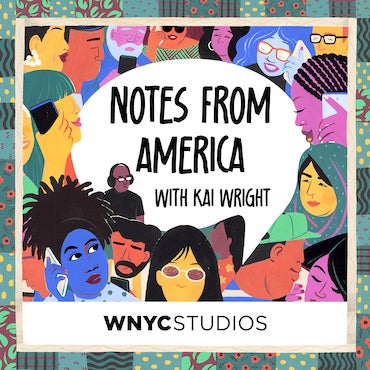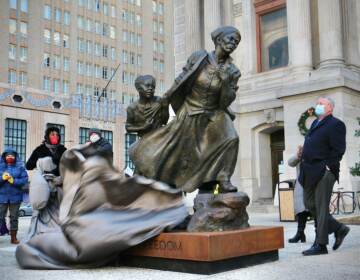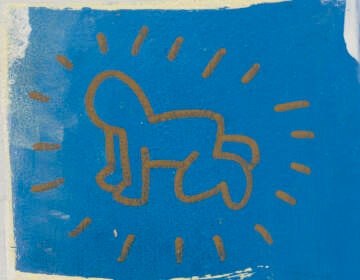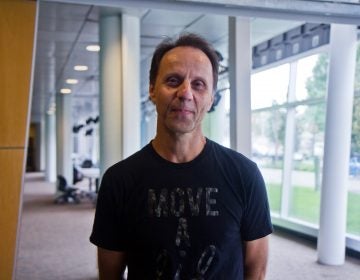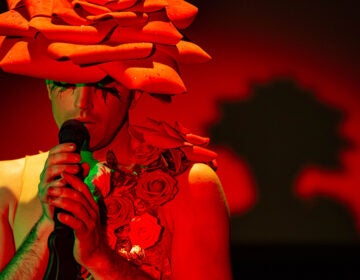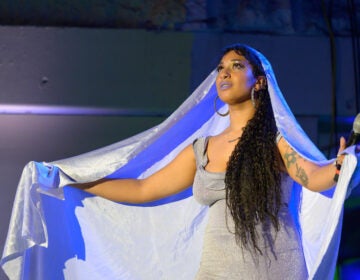Performance ‘hubs’ keep Philly Fringe growing
Collectively produced artists keep costs low and creativity high.
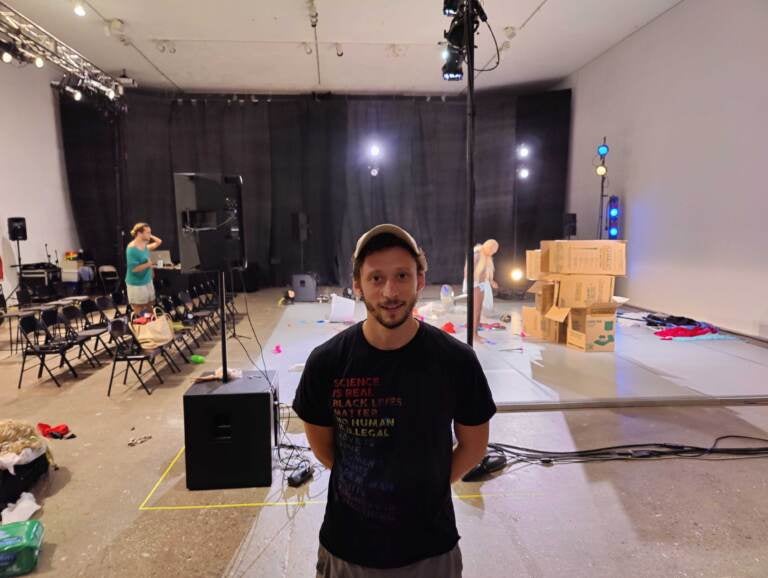
Ben Grinberg, co-founder of the Cannonball Festival, at one of it's stages in the Icebox, at the Crane Arts Building in Kensington. (Courtesy of Cannonball Festival)
The Philadelphia Fringe Festival starts Sept. 8, with more participating productions than ever before. About 180 artists and companies are performing work as part of the month-long festival.
That large number is due in part to artists collectively organizing themselves into so-called hubs, or sub-festivals inside the Fringe Festival. Three hubs have emerged in the last few years, the most prominent of which is the Cannonball Festival.
Cannonball launched last year with 28 artists at the Maas building in Kensington. This year that number more than doubled, with about 68 artists and an additional stage at the Icebox in the Crane Arts Building.
“It just became clear that a lot of people were really, really hungry to be a part of a model where they were able to share resources,” said co-founder Ben Grinberg. “They wouldn’t have to shoulder the whole burden of producing their entire show by themselves.”
One of those artists is Shavon Norris, performing a piece whose lengthy title summarizes the work: “Me and Jesus and Prince and Captain Jean-Luc Picard in a One Bedroom apartment in the Bronx.”
It’s an autobiographical piece of dance and theater based on Norris’ childhood influences. She describes herself as a Black, sci-fi, Christian version of Mr. Rogers.
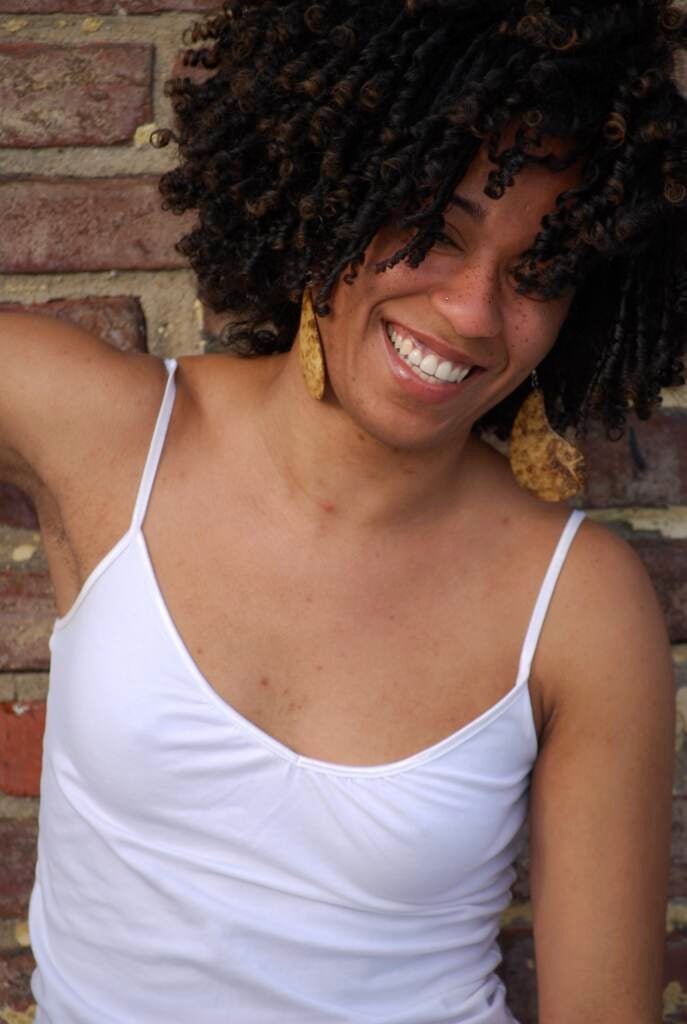
“I really like Mr. Rogers. I like the way that he invites children and adults to process. He says this thing that ‘feelings are mentionable and manageable,’” she said. “If we can mention them, we can understand and manage them. And I really love that.”
Norris has been involved in the Philadelphia performing arts scene for decades. She has participated in the Fringe festival over the years, but only infrequently. Part of the reason for that is she does not force herself to create new work every year.
She also said self-producing her own work, which is the Fringe model, is exhausting. It’s not worth going through it every year.
“Producing is just hard. It’s a lot of work. I’m really interested in ease and pleasure right now in my life,” said Norris. “As a Black woman body, I’m going to do what’s easy and what’s pleasurable, what feels really juicy, what feels really healthy. I want to be able to take naps.”
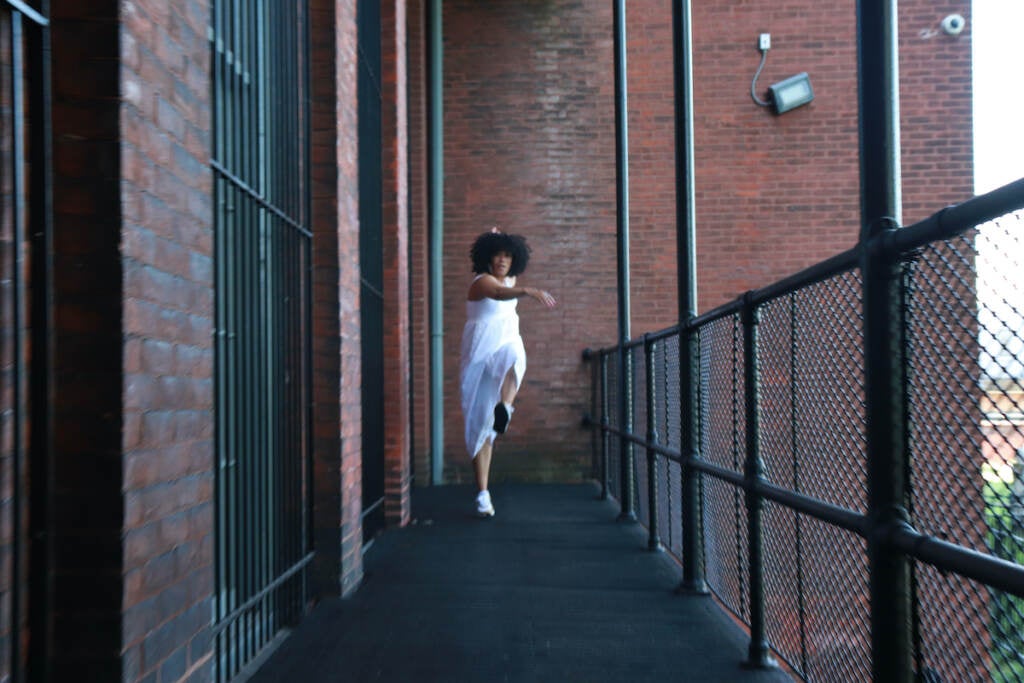
The Cannonball Festival takes a lot of the production burden away from the individual artist with a collective model. The organizers of the festival provide a venue and much of the back-end production work, while splitting the ticket revenue.
“If you’re an artist interested in making a full-length work and presenting it during the Philadelphia Fringe, before Cannonball and before hubs you would have to do a whole bunch of things,” said Grinberg.
“You would have to find a venue. You would have to make sure there is lighting and sound equipment in that venue. You would have to hire people to run that lighting and sound equipment. You would have to rent a truck to load all of your stuff there, rent lights and deliver the lights and install the lights,” he said. “You would have to be in charge of all of your own marketing. You would have to produce your entire show. And then make your own show on top of that.”
Cannonball sets up stages with lights, sound, and crew in the two locations. It schedules artists into a schedule of daily, back-to-back performances. It advertises, and makes available refreshments between shows: a beer garden at the Maas building run by Fergie’s Pub, and discounts at Punch Buggy brewery across the street from the Icebox, and Cider 13 up the block.
Cannonball seeks to create a critical mass of artists and audiences in one place.
The decentralized nature of the overall Fringe Festival is part of its excitement, luring audiences into previously undiscovered spaces around the city. But Grinberg says it’s also one of its challenges for both artists and audiences: going into obscure corners of the city for a show can sometimes mean there is nothing else around you.
“The thing that keeps coming up again and again is it’s just so much more fun to be a part of a vibrant environment instead of off on your own as an island,” he said. “Speaking to artists who have been part of the Philly Fringe from out of town in the past, it doesn’t even feel like a festival when you’re the only art event in a square mile or something, because Philadelphia is so big.”
Grinberg and Cannonball have created a hub template that the Fringe would like to see replicated.
Earlier this year, Greg Kennedy contacted the Fringe Festival for some advice. Kennedy is the owner of the Circus Campus, a former church estate in Mount Airy transformed into a home base for more than a dozen circus-related performing arts companies.
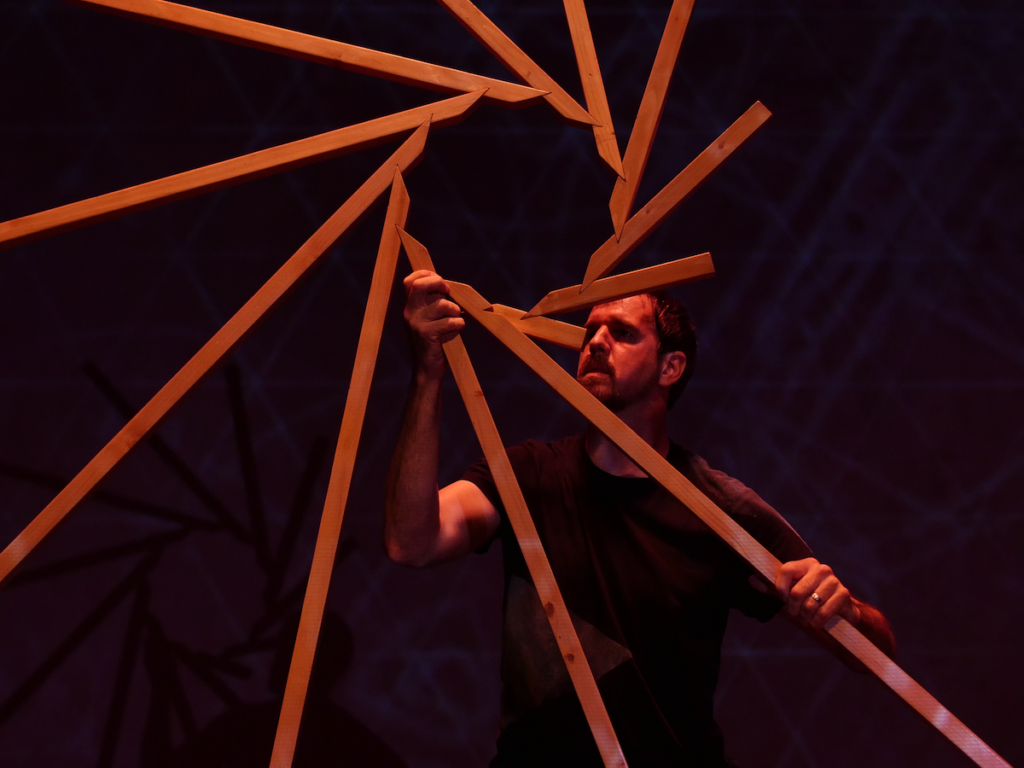
An occasional Fringe performer himself, he recognized that the Campus he started five years ago could be used to show off Philadelphia’s circus community.
“We reached out to everybody within the community who was out there doing work elsewhere, and gave them an invitation to essentially have a theater for free,” said Kennedy. “It gives an opportunity for us to showcase what we’ve been doing here for the last five years within the community, and we’re just trying to invite as many people out as we can to see that.”
Kennedy didn’t have a plan, or even a name for what he was imagining. His office manager Brynna Raine reached out to the Philly Fringe and found its Independent Artist Program Manager, April Rose.
“April was, like, ‘We actually have a word for this. It’s called a Hub,’” said Raine . “She sent me previous Cannonball Festival materials and said, ‘We need this from you.’ And I said, ‘Cool, I’ll make those things.’”
This year Circus Campus will present 14 acts in its theater, sharing space and resources and marketing from Mount Airy. Kennedy hopes the activity will draw people to the outlying neighborhood far removed from Center City, where most of the Fringe Festival happens.
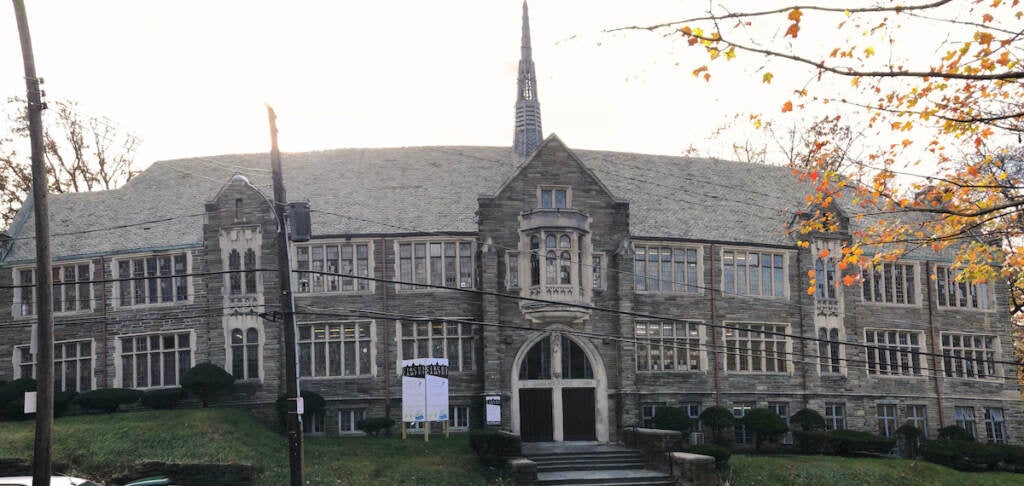
A third Fringe hub will also be continuing during the Fringe Festival: Crossroads Comedy Theater. The comedy presenter has been staging improv, stand-up, and sketch comedy for a few years, this year taking over Theatre Exile for five days, hosting dozens of performers. Crossroads is not only producing them but offering a discount pass exclusive to its own hub.
The hub model could make theater not only easier, but better.
Norris, at Cannonball, said the burden of production can stifle experimentation and creativity.
“I didn’t know this when I was younger, but I know this now in my 45 year-old body: being able to be creative takes space in your brain, in your body,” she said. “The things that Cannonball is taking care of allows me to sit and dream and imagine and play and move.”
Grinberg said he has no plans to spin Cannonball Festival away from the Fringe, whose ticketing platform and administrative tools are too valuable to go without. He did, however, hold a smaller version of Cannonball, called Miniball, last March during Philly Theater Week, which proved to be successful: with just seven shows in six days it was much smaller than Cannonball, but sold more tickets per show.
WHYY is your source for fact-based, in-depth journalism and information. As a nonprofit organization, we rely on financial support from readers like you. Please give today.

